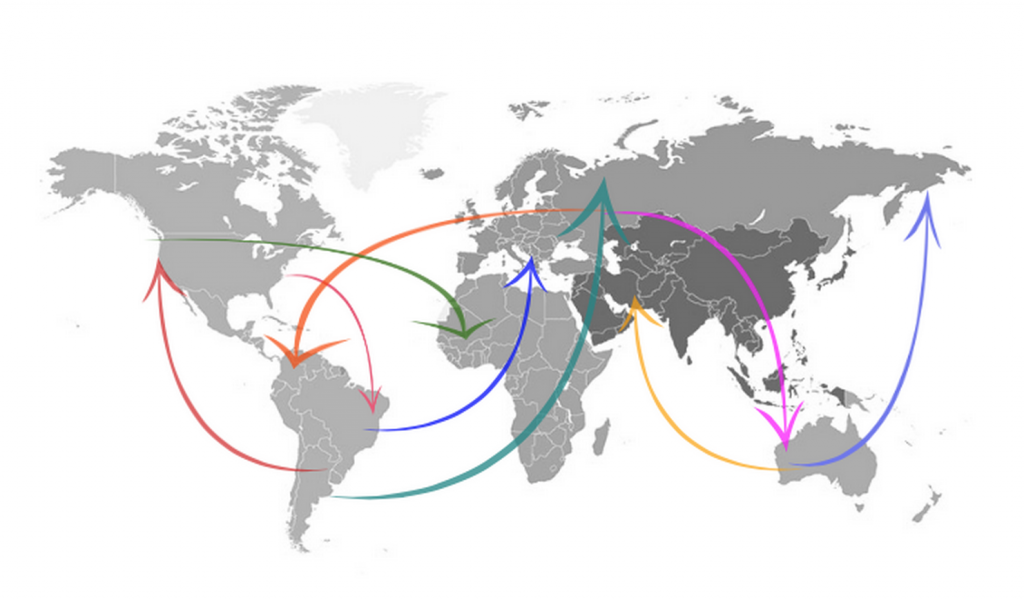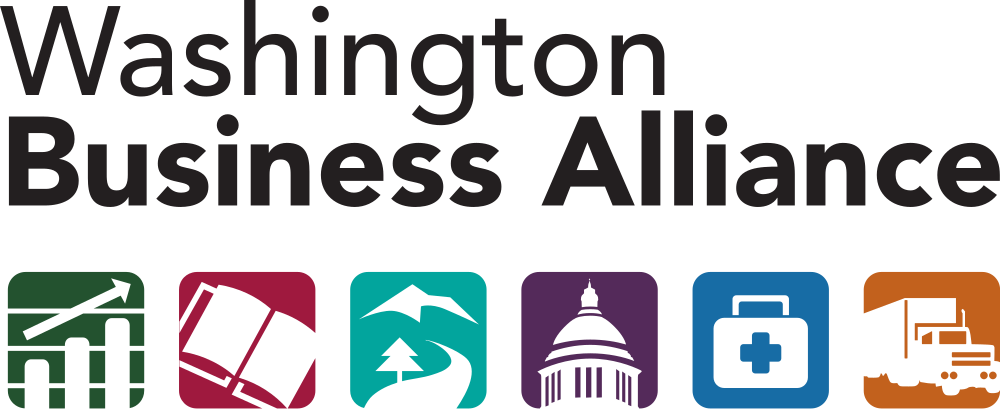 This year’s Annual Economic Forecast Conference was all about global engagement — how to attract trade & foreign direct investment (FDI) and leverage it into sustainable, high quality growth. The collective opinion of the presenters was that the Puget Sound region needs to do more than just look pretty. As Chris Mefford, of Community Attributes, Inc., put it, “We get by on our own good looks.”
This year’s Annual Economic Forecast Conference was all about global engagement — how to attract trade & foreign direct investment (FDI) and leverage it into sustainable, high quality growth. The collective opinion of the presenters was that the Puget Sound region needs to do more than just look pretty. As Chris Mefford, of Community Attributes, Inc., put it, “We get by on our own good looks.”
The global landscape has shifted. In 1984, the United States attracted 45 percent of the world’s FDI, whereas now it only attracts 12 percent. Roughly 80 percent of output growth is being generated outside of the United States. And by 2050, 53.2 percent of middle class consumers will be from either India or China.
Global FDI continues to grow, but the United States is not nearly as competitive as it once was. These statistics reflect the tremendous opportunities for companies who go global, as well as the need to incentivize global companies to land in Seattle.
Wait, what’s FDI?
Foreign direct investment is not to be confused with foreign portfolio investment. The latter is simply capital flow across international borders (think stocks and bonds). FPI becomes FDI when it crosses a certain threshold– an investor or company must purchase enough equity to have a controlling stake in a foreign company (usually 10 percent of shares) to be considered FDI. Mergers and acquisitions also count as FDI.
Unlike FPI, FDI includes physical assets too. The most concrete example of FDI is when a company establishes a presence in another country– take the Mitsubishi factory in Moses Lake or Alibaba’s office in downtown Seattle for example.
The reason that FDI is highly sought after is that it is less volatile than foreign portfolio investment, which can come and go as markets fluctuate. FDI can bring benefits like job creation and technology transfer.
Leaving money on the table
King County Executive, Dow Constantine gave the audience an overview of what is happening in our region. Since 2005, King County has gained approximately 95,000 households. Over 90 percent of those households are at either the top or bottom of the income spectrum. The missing middle is due in part to a lack of skilled, family-wage jobs. Boosting trade and FDI can help. The Brookings Institute notes that 5,080 jobs are created for every 1 billion dollars in exports, and the majority of jobs created through FDI are in manufacturing and advanced industries (defined by Brookings as those with high demand for R&D and STEM skills).
International trade is familiar territory for the Puget Sound. After all, the Seattle area already has a tight foothold in international trade– Seattle exports make up almost 17 percent of the state’s GDP (nationally, exports only make up 12 percent of GDP) and 40 percent of jobs are tied (either directly or indirectly) to global trade. FDI, on the other hand, feels like a new frontier. Even with its impressive array of multinationals, the Puget Sound is lagging behind when it comes to FDI.
Between 1991 and 2011, the Greater Seattle region kept pace with its peers in terms of growth in FDI employment (14th among the top 100 US metros), but in terms of number of foreign-owned establishments (FOEs) the region fell to 29th, adding just 300 establishments in that 20 year span—100 fewer than Portland and 200 fewer than Denver.
Making Seattle a global city
Luckily, Seattle was selected to be an FDI Pilot City by the Global Cities Initiative (the result of a partnership between the Brookings Institution and JPMorgan Chase), which will further develop the Global Trade and Investment Plan.
Amy Liu, director of Brookings’ Metropolitan Policy Program, claims that Seattle’s participation in the program will increase the city’s ability to “punch above its weight.” There are also several initiatives from the state to the city level that are focused on international trade and FDI. Mayor Murray is hiring someone to work exclusively on Seattle’s global presence and Governor Inslee touted the new Invest Washington website/booklet. Both men spoke about their efforts to strengthen ties with China.
The people make the place
Aside from the outward-facing initiatives that build relationships and promote Greater Seattle to the global business community, there is an urgent need to cultivate a talent pool in the Puget Sound to bring in more FDI.
In his speech, Governor Inslee said that attracting FDI depends on developing the capabilities of our citizenry through early education and workforce development. Recalling his conversations with business leaders (including a recent meeting with Elon Musk), Inslee reiterated that Seattle needs to give companies what they demand– a world-class workforce.
Echoing earlier sentiments, Governor Inslee cautioned against relying on Seattle’s cool reputation to bring in FDI, saying that it “is not a birthright etched in stone. It is something we have to compete for every day.”
